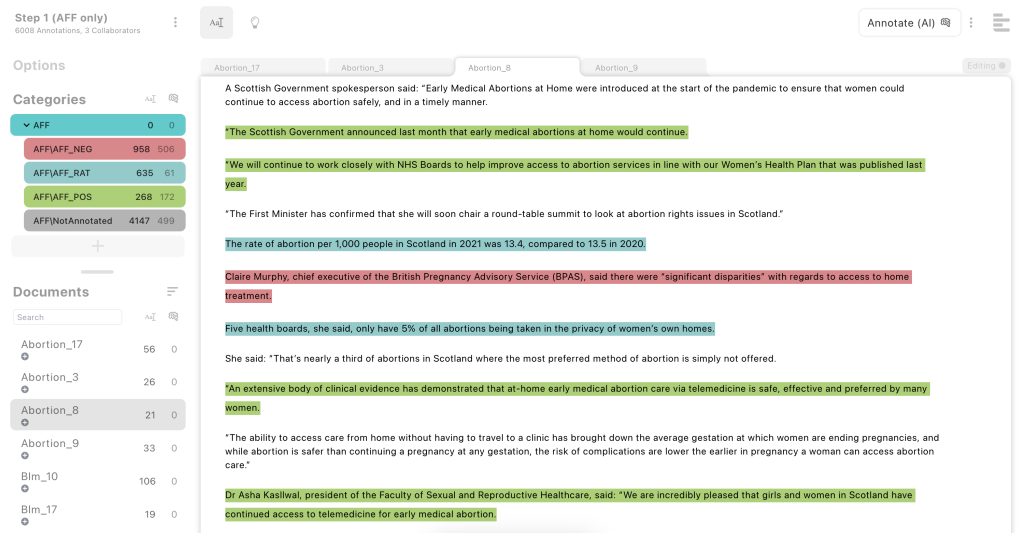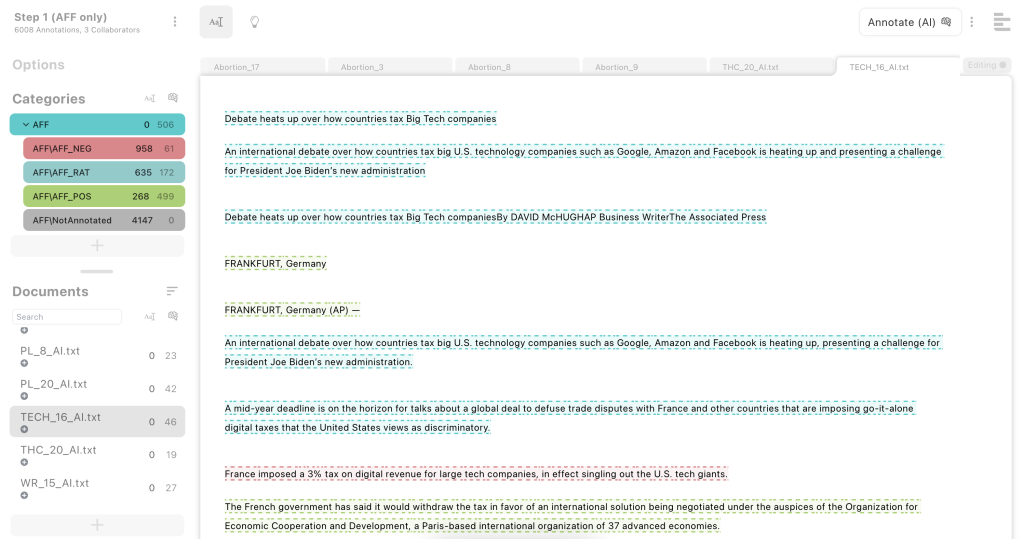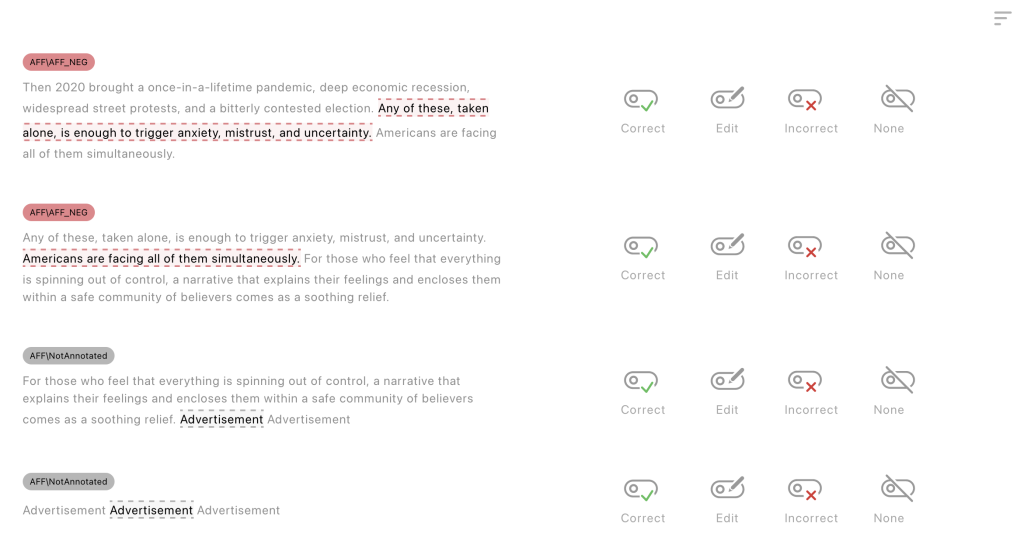An In-depth Overview of AI-Powered Text Annotation
In today’s research-driven landscape, the ability to efficiently annotate vast amounts of textual data has become paramount. This necessity is felt acutely by academic researchers, students, and data scientists. While many tools exist to aid in this endeavor, the introduction of textada offers a distinct approach, emphasizing both AI capabilities and user adaptability. Welcome to the world of AI-powered text annotation.
Understanding textada
textada is an AI-powered text annotation software developed to cater to a diverse user base, from researchers to data scientists. Unlike many contemporary tools, textada’s core functionality revolves around its AI-centric foundation.

Distinguishing Features of textada
Emphasis on AI-driven Customization
Few annotation tools provide AI-generated categories, which, while useful, may not always align with specific research requirements. Research from the University of Oxford has emphasized the importance of customization in AI-driven tools. textada addresses this limitation by offering users the flexibility to create and customize their annotation categories. The initial manual annotations made by the user serve as a basis from which the AI learns, subsequently providing suggestions for the remainder of the document based on this input.

Review View for Enhanced Precision
Accuracy is fundamental in text annotation. Textada allows with its active view users to methodically verify AI-generated annotations. This feature ensures that the AI’s efficiency is complemented by the user’s expertise, resulting in high-quality annotations.

Cost-Effective Solution
In alignment with our commitment to making advanced research tools accessible, textada is made available to users at no cost. This provision aligns with the Open Science Movement, which advocates for free access to research tools and findings. Even better, not only is the tool free of use, it also helps you to reduce your annotation cost by semi-automating the annotation process.
Core Features at a Glance
1. User-Centric Interface: Designed for ease of use, ensuring a smooth annotation process.
2. Adaptive AI Assistance: AI technology tailored to enhance user efficiency without compromising accuracy.
3. Compatibility with qdpx Format: Facilitates hassle-free data import and export, catering to users of various software backgrounds. This also allows you to easily import your existing annotation projects from almost all of the established annotation software.
4. Transparent AI Insights: Provides a clear overview of the AI’s performance, allowing users to make informed decisions. This transparency is in line with AI ethics principles that emphasize the importance of understanding AI decisions.
5. Robust Functionality: Incorporates standard features familiar to users of established text annotation software.
Concluding Thoughts
As the need for advanced text annotation tools grows, platforms like textada, which prioritize both AI capabilities and user adaptability, become crucial. We encourage those in the research and data science fields to explore textada and assess its potential in enhancing their annotation workflows.
For those interested in staying updated on further developments and insights, free registration for the textada app is open now and you can sign up below.